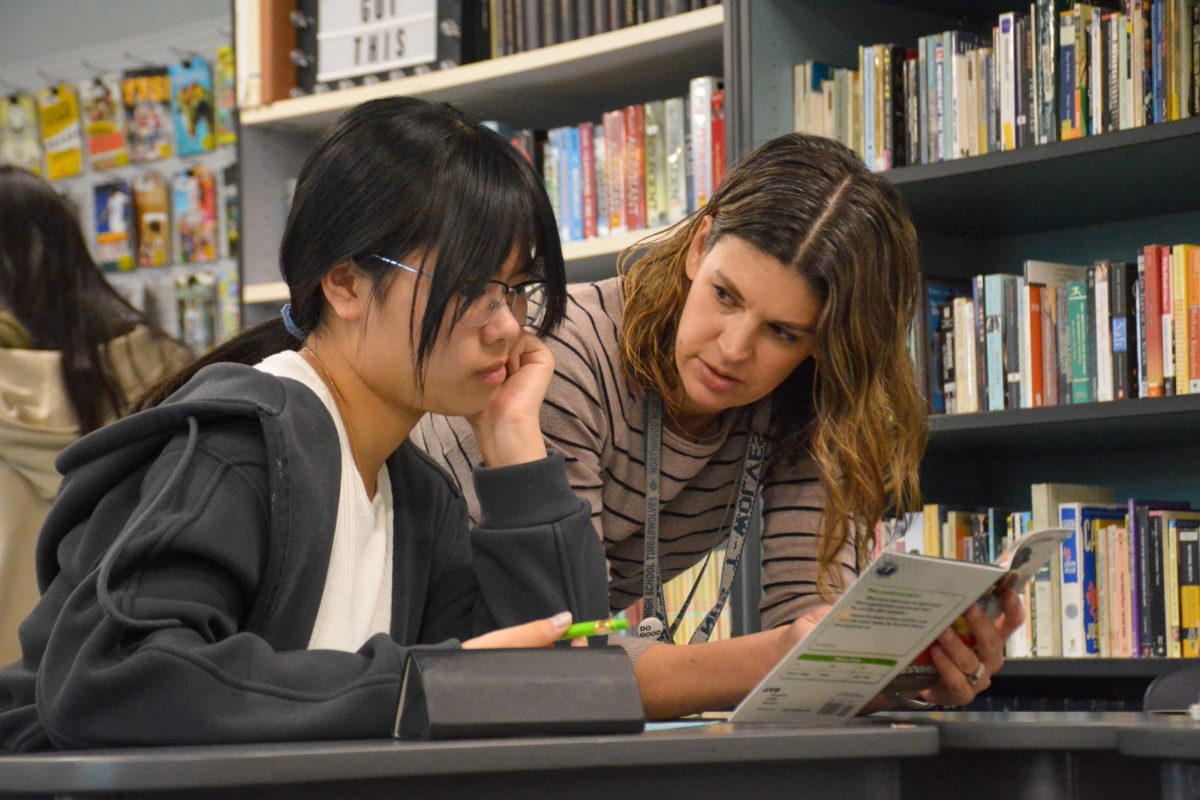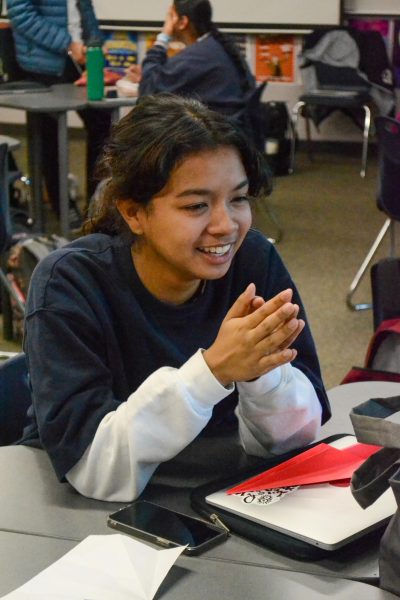When sophomore Yiting (Leonie) Zhu stepped onto Northwood’s campus for the very first time, she never would have imagined that the foreign landscape of fast-talking, fast-moving students could be a place she would grow to call home.
After transferring from an intense private academy where she endured discriminatory treatment and racial stereotyping from her classmates, Zhu’s experience with American high schools had been far from positive.
And while moving to Northwood was a fresh start, Zhu continues to face challenges in her daily life as an English Second Language student that many other non-native English speakers deal with in addition to the already stressful experience of high school itself.
“Sometimes you can’t fit in with the traditional culture here, like just talking and chatting,” Zhu said. “You don’t understand, so it can make you feel like an introvert even though you’re not. It gets a little lonely for us, and we feel like outsiders.”
For students who are new to English, Northwood offers English Language Development and sheltered humanities classes, which are courses designed to provide additional assistance for language learners while still teaching the necessary components of a regular humanities course.
Additionally, ELD coordinator Emily Rhodarmer leads the Language Ambassadors program, a student organization that provides support for ESL students adjusting to Northwood.
“On my first day of school, I was a little nervous, but the Language Ambassadors grouped us together and it was actually very fun,” Zhu said. “Northwood’s school system is different with things like humanities classes, so it’s actually really hard for ESL students to understand, but the Language Ambassadors class helped us with any questions or confusion about the courses.”
Managing the rigor of their classes is just another struggle for ESL students on top of having to adapt to a new language and culture. Even after living in America for four years, Zhu admits that she still sometimes struggles to keep up with her teachers and peers.
“You understand science or math questions because you can look at the equations and graphs,” Zhu said. “But for humanities classes, it’s pretty hard because you don’t know what the teacher is saying. A lot of ESL students will use a dictionary, which is helpful, but it takes up time, so those students end up having to take tests during lunch. When we’re doing an in-class essay or in-class paragraph, it’s very hard for us and some teachers won’t give us any extra time.”
At Northwood, the emphasis on academics often makes it easy to forget the importance of treating each student with respect and compassion. Zhu hopes to remind people that kindness doesn’t go unnoticed.
“I just want American students to know it’s very hard,” Zhu said. “They might think that foreigners only want to talk to our own people, but it’s just because we don’t know how to fit in or talk to other students. We don’t know where to start and it’s very intimidating. Please be kind; we are trying our best.”





















































